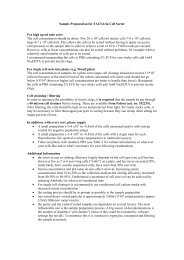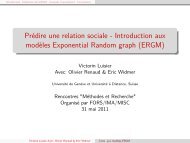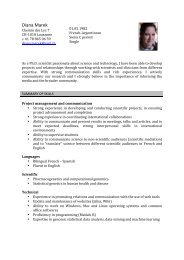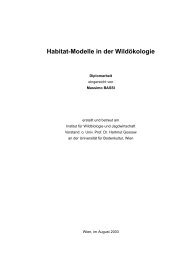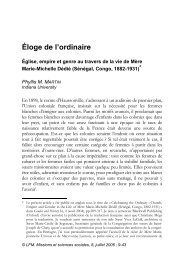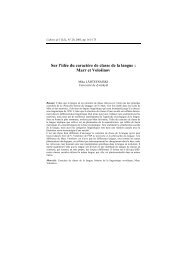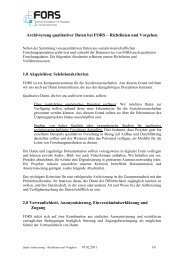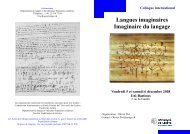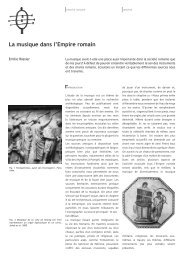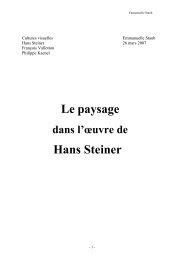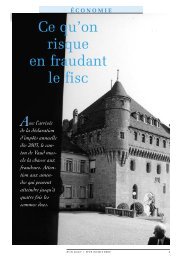conference programme book - European Survey Research ...
conference programme book - European Survey Research ...
conference programme book - European Survey Research ...
You also want an ePaper? Increase the reach of your titles
YUMPU automatically turns print PDFs into web optimized ePapers that Google loves.
WEDNESDAY 20 JULY 93There is no standard format. This variaon impedes users’ ability to determine the trustworthiness and veracityof research findings. This is problemac not only in the assessment of a single report, but also in theassessment of different reports tesng the same survey quesons. If different reports have dissimilar findingsfor similar quesons, it is difficult to directly compare the conclusions if the reader cannot adequately evaluatethe findings. This paper addresses this issue and discusses factors that make it easier for readers to evaluatethe findings of a cognive evaluaon final report.2.27.4 Strategies for Analyzing Cognive Interviews in Queson Evaluaon StudiesK. Miller 1 , J. Padilla 21 Naonal Center for Health Stascs , United States; 2 University of Granada, SpainDrawing on the work performed by The Granada Group, a coalion of survey methodologists who have conducteda large-scale mulnaonal cognive interviewing study, this paper will describe various ways in whichcognive interview data can be analyzed for queson evaluaon studies. Addionally, it will discuss the advantagesand disadvantages of the various strategies for studies that require an assessment of comparabilityfor cross-cultural or mulnaonal surveys. As with quantave methods, there are numerous ways in whichan analyst can go about examining cognive interview data, and the method of analysis must be consideredin the context and purpose of the cognive interviewing project. Most importantly, and just as in quanta-ve methodology, how an analyst actually goes about conducng analysis of cognive interviews informs thefindings of that study...2.28 Specific sub-groups of non-respondents: who are they and how can we enhancetheir parcipaon IITo be held on July 20, 2011 from: 14:00 to 15:30, in room 413.Coordinated by:• Michèle Ernst Stähli - FORS - Swiss Foundaon for <strong>Research</strong> in Social Sciences, Switzerland• Alexandre Pollien - FORS - Swiss Foundaon for <strong>Research</strong> in Social Sciences, Switzerland2.28.1 Influence of the contact trials and me of contacts on the parcipaon of certain sub-populaongroups in a telephone health interview surveyP. Schmich 1 , E. von der Lippe 11 Robert Koch Instute, GermanyThe relaon between non-response and data quality in the social surveys is broadly discussed and invesgated.Sciensts apply numerous methods for improving response and the sample designs.In our study we define sub-groups of respondents which are difficult to contact and convince to parcipatein a health telephone survey. We use meta-data from the telephone interview survey German Health Updateconducted by Robert Koch Instute. The survey was carried out from July 2009 ll June 2010 and has about22 000 parcipants aged 18 and older. We examine the parcipaon of the ’problemac’ groups according tonumber of contacts and the me of contact.2.28.2 Lifestyle, accessibility and cooperaon of respondentsM. Sapin 1 , D. Joye 2 , A. Pollien 1 , M. Ernst Stähli 11 FORS - Swiss Foundaon for <strong>Research</strong> in Social Sciences, Switzerland; 2 University of Lausanne, SwitzerlandNon respondents’ universe is characterized by a great heterogeneity. Literature disnguishes two main causesfor non-parcipaon: non-contact and refusal. Accordingly, research reduces most of the me the nonrespondents’universe into two separate groups, differenang the ”hard to reach” respondents from thosewho refuse to cooperate, with the aim of assessing substanal features of both groups based for example on



